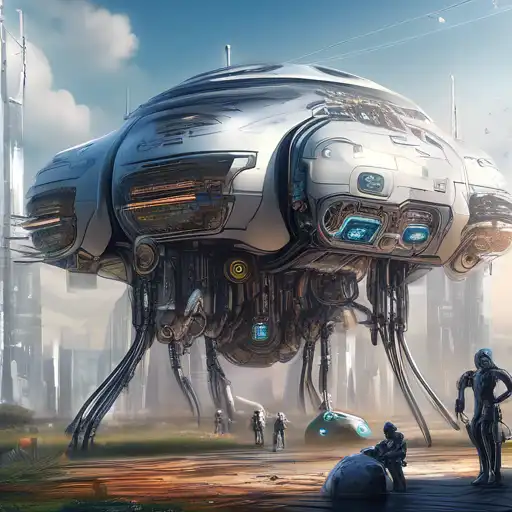Introduction to Artificial Intelligence's Evolution
Artificial Intelligence (AI) has transitioned from a futuristic concept to a cornerstone of modern technology. Today, AI is not just about robots or sci-fi movies; it's about real, impactful innovations that are reshaping industries, enhancing human capabilities, and solving complex problems. This article delves into the current state of AI, exploring its advancements, challenges, and what the future holds.
The Current Landscape of AI
The realm of AI today is vast, encompassing machine learning, natural language processing, robotics, and more. Companies across the globe are leveraging AI to drive efficiency, personalize customer experiences, and innovate products and services. From healthcare diagnostics to autonomous vehicles, AI's applications are boundless.
Key Advancements in AI
- Deep Learning: Revolutionizing how machines understand and interpret data.
- Natural Language Processing (NLP): Enabling machines to understand human language with remarkable accuracy.
- Computer Vision: Allowing machines to interpret and act upon visual data.
Challenges Facing AI Today
Despite its rapid growth, AI faces significant hurdles. Ethical concerns, data privacy issues, and the potential for job displacement are hot topics. Moreover, the need for vast amounts of data and computing power poses limitations on AI's accessibility and development.
Overcoming Obstacles
Addressing these challenges requires collaborative efforts from governments, industries, and academia. Establishing ethical guidelines, ensuring data privacy, and fostering AI education are critical steps toward sustainable AI development.
The Future of AI: What to Expect
The future of AI is bright, with advancements expected to accelerate. We anticipate more personalized AI, breakthroughs in quantum computing affecting AI, and greater integration of AI in everyday life. The potential for AI to address global challenges, such as climate change and healthcare, is immense.
Preparing for an AI-Driven Future
As AI continues to evolve, staying informed and adaptable is key. Embracing lifelong learning and understanding AI's implications will be crucial for individuals and businesses alike.
Conclusion
Exploring the future of artificial intelligence today reveals a landscape of endless possibilities and challenges. By understanding AI's current trajectory, we can better prepare for its impact on society and harness its potential for good. The journey of AI is just beginning, and its full potential is yet to be unlocked.
